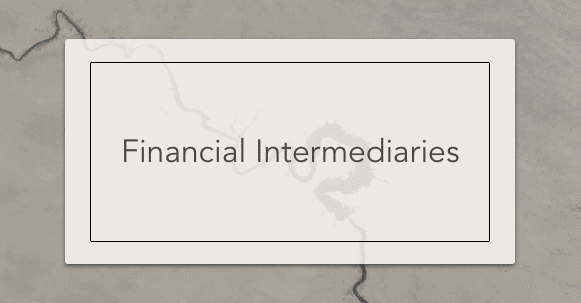A financial intermediary is a financial institution that connects surplus and deficit agents. The classic example of a financial intermediary is a bank that consolidates deposits and uses the funds to transform them into loans. The job of financial intermediaries is to connect borrowers to savers. For example, A bank loan is a form of indirect finance.
Financial intermediaries perform the vital role of bringing together those economic agents with surplus funds who want to lend, with those with a shortage of funds who want to borrow. In doing this, they offer the major benefits of maturity and risk transformation. It is possible for this to be done by direct contact between the ultimate borrowers, but there are major cost disadvantages of direct finance.
Financial Intermediaries Examples

1. Insurance Companies
Insurance companies offer insurance to help spread the risk of default. You would go to an insurance company if you had a risky investment and wanted to mitigate your risk.
2. Financial Advisers
Financial advisers offer advice on your behalf. They save you understanding all the complexities of the financial markets and find you the best investment.
3. Credit Unions
Credit unions are a type of bank set up specifically by a community to provide banking services to that community.
Five Services Performed by Financial Intermediaries
- They pool individual funds together
- They provide safekeeping, accounting and access to payment systems
- They provide liquidity
- They reduce risk by diversifying their investments.
- They collect & process information, thereby reducing the problem of asymmetric information.


Very simple and in details explanation. Love this explanation of financial intermediaries.
easy , simple explanations…